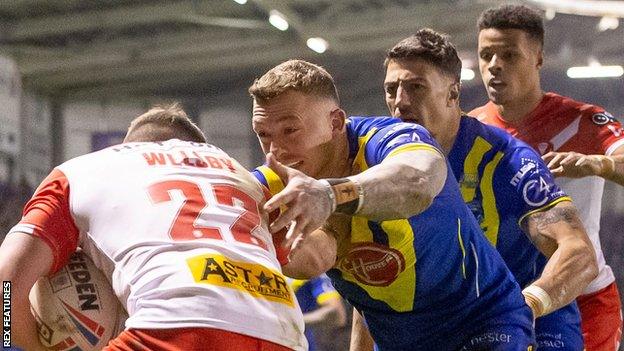Super League: Clubs sending letters to players and staff about wage cuts
- Published

St Helens and Warrington are among the clubs with the largest wage bills
Players and staff at the 12 Super League clubs have begun to receive letters outlining the level of pay cuts they will need to accept to help the long-term future of the professional game.
The cuts are being staggered, so the highest-earning stars will be asked to take the biggest reductions.
Negotiations have been taking place over the last couple of weeks between Super League, club owners and players' representatives, including the GMB union.
"This is about the long-term survival of the game and the long-term survival of each club," said one club representative.
At least one Super League club will ask all its staff to take a pay cut, not just players and coaches.
Most players have already been furloughed to help protect businesses, and in most cases their money has been topped up by the clubs - but this is a longer-term approach.
Initially Super League had agreed to a 'one for all, all for one' approach of imposing the same percentage cut at every club.
But now each organisation, although working to a similar model, will impose slightly different wage reductions to reflect the nature of their own businesses.
Clubs like St Helens, Warrington and Leeds face the biggest impact from the current crisis.
They own their own stadiums, so have lost income from non-matchday activities, and they have bigger wage bills and cost bases.
Leeds chief executive Gary Hetherington told a press briefing last week that his club will lose an estimated £1.5m over the next three months of projected income from non-matchday services.
Clubs like Salford, however, have much lower costs. They only rent their stadium and have a comparatively smaller wage bill.
One current Super League player said: "We understand the bigger the wage, the bigger the percentage cut each player will be asked to take.
"I think that's fair as it protects the younger players and the less well paid."
